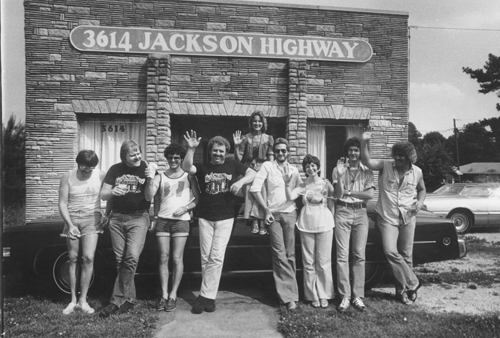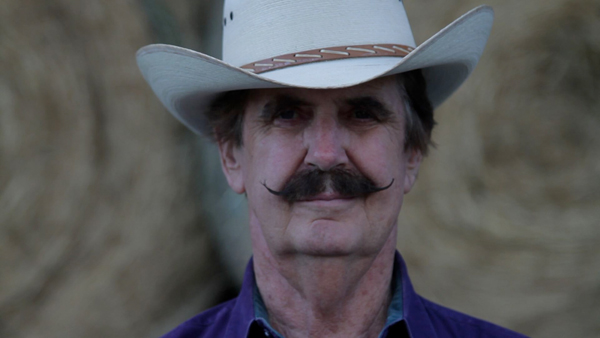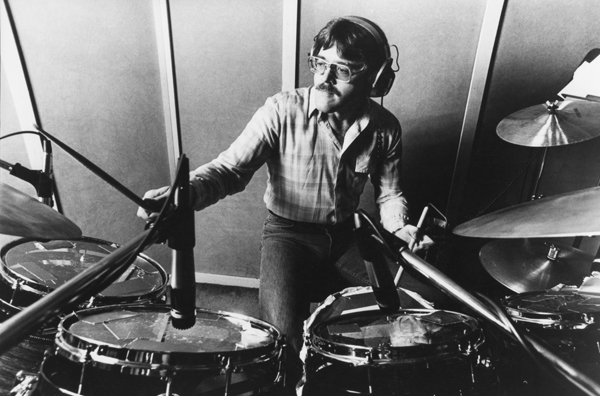| Reviews & Columns |
|
Reviews DVD TV on DVD Blu-ray 4K UHD International DVDs In Theaters Reviews by Studio Video Games Features Collector Series DVDs Easter Egg Database Interviews DVD Talk Radio Feature Articles Columns Anime Talk DVD Savant Horror DVDs The M.O.D. Squad Art House HD Talk Silent DVD
|
DVD Talk Forum |
|
|
| Resources |
|
DVD Price Search Customer Service #'s RCE Info Links |
|
Columns
|
|
|
Muscle Shoals

Please Note: The stills used here are taken from promotional materials and other sources, not the Blu-ray edition under review.
The Movie:
Muscle Shoals, a 2013 documentary directed by Greg "Freddy" Camalier, stands out for what it doesn't have - no academics pontificating, no shortcuts or piss-poor music substitutions, no great need to tie in its subject with The Circle Of Life. The film simply uses musicians - great ones - to explain why the backwater hamlet of Muscle Shoals, Alabama, became the unlikely source for some of the most incredible records ever made.
A roll call of a few of Muscle Shoals' greatest hits includes some bona fide biggies - "When a Man Loves a Woman" (Percy Sledge). "I Never Loved a Man" (Aretha Franklin). "Tell Mama" (Etta James). "Slip Away" (Clarence Carter). "Land of 1,000 Dances" (Wilson Pickett). "Wild Horses" (The Rolling Stones). All of the singers involved with these hits are here to give their own impressions of working there (which is amazing in itself). What really makes the film memorable, however, is how it's keenly focused on two things: the incredible landscape of Muscle Shoals, and Rick Hall, the music impresario who started it all.
Although he's obscure to all but the most ardent vintage R&B fans, Rick Hall kick-started the Muscle Shoals mystique by founding Fame Studios in 1960. With impressionistic photography, Muscle Shoals gets acquainted with the gruff, bearlike Hall as he goes through the boxlike confines of his studio (which doesn't appear to have changed a bit since circa 1970, wood paneling and all). Like a lot of regional labels catering to a local audience, Fame started off small and indistinct. Through a combination of sheer talent and Hall's determination, however, the very first Fame sessions with R&B singer Arthur Alexander produced a nationwide hit. As subsequently covered by The Rolling Stones, Alexander's "You Better Move On" was part of what made the Fame label (along with better-known contemporaries Motown, Chess and Stax) a go-to source for British rock bands. The Fame effect snowballed in 1966, when local hospital orderly Percy Sledge recorded the heartfelt ballad "When A Man Loves A Woman." The Atlantic label took notice and distributed that tune nationally, starting a fruitful if turbulent relationship between Hall and Atlantic's Jerry Wexler (he's here, too, in footage done prior to his 2008 death).
One of Muscle Shoals recurring motifs is that these powerful, deep-Soul tracks were generally played by a bunch of white country boys. The film acquaints us with The Swampers, the core set of classic-era backing musicians at Fame - guitarist Jimmy Johnson, bassist David Hood, and drummer Roger Hawkins. The three are self-effacing sorts who seem genuinely grateful for what they've accomplished - it has close ties with Standing in the Shadows of Motown in giving the spotlight to these unsung, versatile-as-hell musicians (after all, it takes real chops to be able to play Soul, Country, Reggae - whatever that particular client needs). Even the high-wattage names assembled here seem a bit in awe of what Muscle Shoals represents - they include Aretha Franklin (who accurately describes the Fame sound as "greasy), Pickett, Sledge, James, Candi Staton, Mick Jagger, Keith Richards, Bono, Alicia Keys, Steve Winwood, Greg Allman and a host of others.
While Muscle Shoals tends toward the episodic (especially in the film's second half), director Camalier structures it with an impressive ebb-and-flow, alternating music-filled excitement with contemplative moments on the town's racial politics and deep history (the area was once inhabited with Native Americans who were forced to relocate to Oklahoma by the government). The '60s stories fascinate, yet there just as much interest in detailing what happened with Fame in 1969, when Rick Hall - on the cusp of signing a big-money deal with Capitol Records - found that his musicians secretly made their own pact with Jerry Wexler and Atlantic. After that devastating shock, Hall assembled his own house band (dubbed The Fame Gang) and had a measure of success producing more mainstream artists like The Osmonds and Tom Jones. Although The Swampers' new home base, Muscle Shoals Sound Studio, got off to an inauspicious start with Cher's flop album 3614 Jackson Highway (named after the studio's address), the documentary goes into entertaining detail with their '70s successes recording albums for Lynyrd Skynryd, Jimmy Cliff, Paul Simon, Bob Seger - a veritable Classic Rock Who's Who.
Sure, Muscle Shoals delves into its subject's highlights with a fine-toothed comb, yet it seems kind of selective on other areas. The film doesn't address how Rick Hall and The Swampers eventually reconciled (although it's explained on one of the commentary tracks). It also turns a deaf ear toward Muscle Shoals' decline in the '80s, when synthesizer-based music production took hold. Although Muscle Shoals continues to be a sought-after destination for current, rootsy musicians like The Black Keys, its hit-making salad days are long gone (the last pop hits recorded there? Julian Lennon's). Despite all that, lush photography and copious expert testimony conveys the allure of Muscle Shoals with a devotion that borders on the spiritual. The film concludes with Alicia Keys' stirring performance of the Bob Dylan song "Pressing On," a fitting coda for a film driven by the philosophy that music means so much more than merely singing and playing instruments.


The Blu Ray:
Video
Visually, Magnolia Home Entertainment did a fine job for their Blu Ray edition of Muscle Shoals, the film's new photography looking luscious in 1080p 1.78:1 high-def. Colors are supple and lifelike, darks deep and rich, lights sunny without being too overpowering. Details are nicely rendered with no noticeable compression effects. The film uses a lot of decent- to good-quality archival material (including clips of the Rolling Stones from Gimme Shelter); the only issue that popped up was that some of the footage of the since-deceased interviewees lack the clarity of the film's other parts.
Audio
The 5.1 DTS-HD Master Audio soundtrack used on Muscle Shoals boasts supple, pristine sound with the dialogue and music up front and center, neither element overpowering the other. Although a lot of this music was originally released in Mono, the film uses Stereo mixes to complement the newly recorded dialogue and music. It sounds fantastic, with music and dialogue expertly woven together. The disc also includes optional subtitles in English SDH and Spanish.
Extras
A pretty nice assortment of bonuses are included on this disc. First off are two Audio Commentaries, one with director Greg "Freddy" Camalier and the other with Rick Hall and backing musicians Jimmy Johnson, David Hood and Spooner Oldham. Although the speakers spend a lot of time merely describing the action onscreen, both tracks contain a good share of behind-the-scenes history and tidbits. About a half-hour's worth of Additional Scenes and Interviews include chats with Candi Staton, Oldham and keyboardist Donnie Fritts (whose material was totally cut from the final film). Trailers for this and other Magnolia releases round out the extras.
Final Thoughts
"Sweet Home Alabama," indeed. Like 2006's Standing in the Shadows of Motown and last year's 20 Feet from Stardom, Muscle Shoals joyously celebrates the people behind the tunes that have filled many a Classic Rock and Golden Oldies playlist. The moving story it tells makes it essential viewing for fans of '60s-'70s Rock and sweet Soul. Highly Recommended.

Matt Hinrichs is a designer, artist, film critic and jack-of-all-trades in Phoenix, Arizona. Since 2000, he has been blogging at Scrubbles.net. 4 Color Cowboy is his repository of Western-kitsch imagery, while other films he's experienced are logged at Letterboxd. He also welcomes friends on Twitter @4colorcowboy.
|
| Popular Reviews |
| Sponsored Links |
|
|
| Sponsored Links |
|
|
| Release List | Reviews | Shop | Newsletter | Forum | DVD Giveaways | Blu-Ray | Advertise |
|
Copyright 2024 DVDTalk.com All Rights Reserved. Legal Info, Privacy Policy, Terms of Use,
Manage Preferences,
Your Privacy Choices | |||||||













